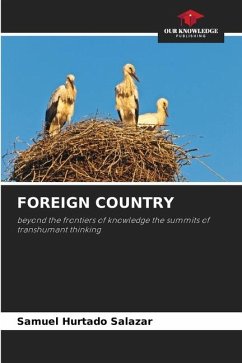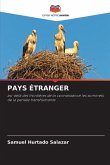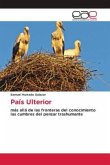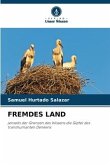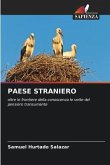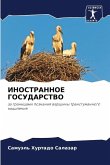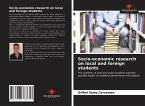This work is that of a journey of scientific transhumance. It begins with the ethnographer becoming a native(go native) in a distant country; it continues with themes of culture, accomplice in bodily illness, political corruption and work ethics. It is oriented towards the way of doing science: epistemology of Latin America and the first transcendental criticisms to our concept of matrisociality to which a categorical closure is given with all the sense to explain the Venezuelan country: its ethnicity offers its best values in favor of human universality. At the end, a chronicle narrates the autobiography of the transmigrated thought, interwoven from the native country (Castilla-León) to the ulterior country (Venezuela). Outer Country constitutes a contribution to the societal conceptualization ('project of society') of cultures, in particular the Venezuelan one, to make it rise early in the thought that must be presented with intelligence of societable innovation, not as the owlof Hegel's German vesper, nor the lark of Touraine's French noon, but dressed in white heron the morning breeze, as dawning is sung at work in the Venezuelan tropical Llanos.
Hinweis: Dieser Artikel kann nur an eine deutsche Lieferadresse ausgeliefert werden.
Hinweis: Dieser Artikel kann nur an eine deutsche Lieferadresse ausgeliefert werden.

